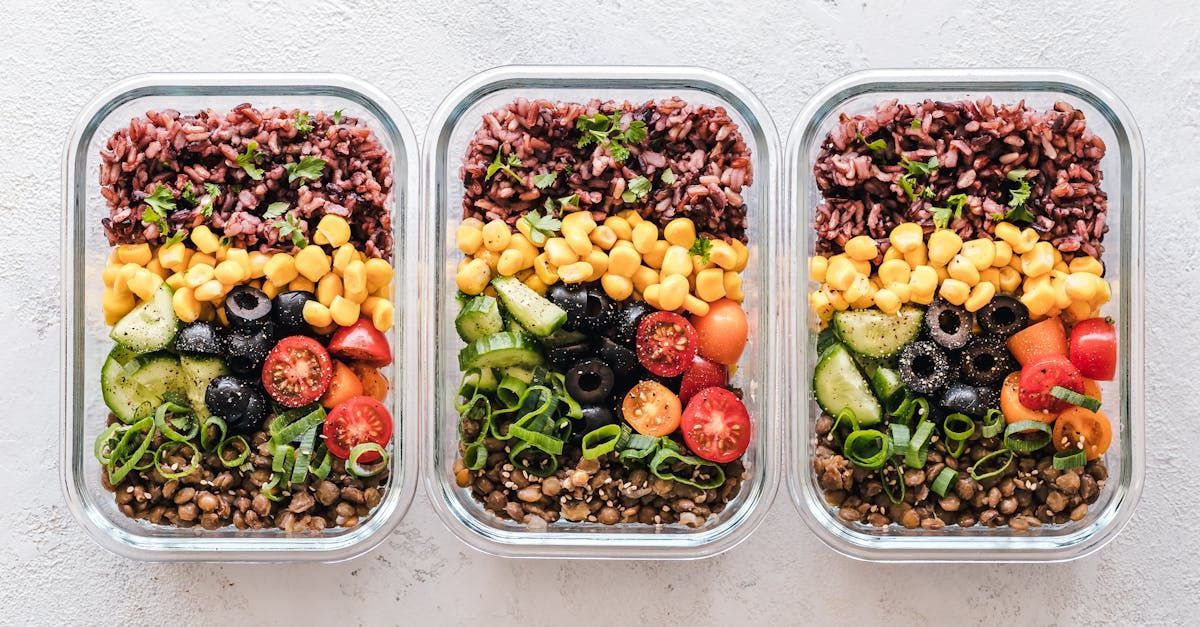3 Sneaky Causes of Low Energy, Fatigue and Exhaustion
Do you remember what it felt like to be a kid just chock-full of energy?
For most of us, childhood is a time of boundless vitality and stamina—where we could run and play for hours without feeling tired.
Then young adulthood hits, and aside from the all-nighters studying (or partying) most young adults have no trouble bouncing back from a little fatigue.
Next we hit our late-twenties and early thirties, and that's when a certain level of low-grade fatigue starts to plague all too many people.
And if you have children and a career, that fatigue can quickly escalate to a state of chronic exhaustion.
But, just because nearly everyone over thirty is walking around glued to their coffee mugs complaining about "being tired all the time", doesn't mean that it is normal.
The fact is, unless you have a child waking you up several times a night or are going through a very stressful time, you should have plenty of energy to spare.
Yet most people slog through their days utterly exhausted and completely reliant on caffeine and other stimulants to get them through.
So, what's going on? Why are we all so tired all the time?
But beyond that, there are some common yet little-known causes of fatigue and exhaustion that often go undiagnosed or under-diagnosed in countless people every year.
Sneaky Low-Energy Cause #1: Poor digestive health
It's been said, "you are what you eat".
At Knew Health and in functional medicine we say, "you are what you digest and absorb".
In other words, you can have the healthiest diet in the world, but if your digestive health is sub-optimal you won't be absorbing the life-giving nutrition you need to create balanced energy and good health.
Some common symptoms of digestive health issues include:
- Gas, bloating and indigestion
- Anxiety
- Insomnia
- Lack of appetite
- Extreme appetite
- Weight-gain
- Constipation or diarrhea
- Intense cravings for sweets
- Uncomfortable or painful digestion
- Skin disorders
- Poor immunity (at least 90% of your immune system resides in your gut)
- Headaches, brain fog, memory loss
- Fatigue/exhaustion
- Nutrient deficiencies or insufficiencies
We'll get into some of the common nutrient insufficiencies which affect energy coming up.
But first here are some simple things you can do to start improving your gut health today:
#1: Try an elimination diet.
We typically recommend eliminating foods which can trigger digestive issues for 3-4 weeks.
These trigger-foods include: gluten, dairy, sugar, soy, corn and eggs.
After 3-4 weeks, try adding one food category back every 3-5 days and track how you feel.
If any symptoms (digestive or otherwise) return upon re-introducing that food, you'll know it's one you want to avoid.
#2: Up your intake of probiotic and prebiotic-rich foods.
While some people may benefit from probiotic/prebiotic supplementation, most of us can get plenty of what we need from specific foods.
Some of our favorite probiotic rich foods include:
- Kombucha
- Kim chi
- Cultured vegetables
- Real pickles
- Yogurt
- Kefir
In addition, you'll want to super-charge those probiotics by feeding them prebiotic fiber.
Prebiotic-fiber-rich foods include:
- Onions
- Garlic
- Asparagus
- Chicory
- Jerusalem artichoke
- Mushrooms
- And moderate amounts of bananas
#3: Keep your stress in-check
Stress has been shown as a major causal factor in digestive health issues, due to the direct impact our brain has on our gut (known as the gut-brain connection).
Some simple stress management techniques to improve digestion and well-being include:
- Meditation
- Regular exercise
- Deep belly breathing
- Spending time with friends
- And listening to music (to name a few)
Sneaky Low-Energy Cause #2: Nutrient insufficiencies
Once you've taken steps to begin healing your gut, it's time to look at your nutrient levels.
There are many nutrient insufficiencies which don't show up on traditional blood work (hence the term "insufficiency" and not "deficiency") which can impact your energy levels.
While we can't cover them all today, some of the common heavy hitters are:
- B-vitamins—specifically B12, which many people are deficient in.
- And iron—which is often missed in traditional blood tests, and a very common insufficiency/deficiency in menstruating women.
Let's start with B-vitamins.
B-vitamins come from a variety of foods such as meats, vegetables and fruits, and their absorption is enhanced by a healthy gut.
The problem is, they are also easily depleted by a variety of common processed foods, medications, beverages and even stress.
For example, excess consumption of refined sugar quickly depletes B-vitamins, as does alcohol, certain prescriptions and over-the-counter drugs.
In addition, some people have genetic mutations which hinder their ability to absorb certain types of B-vitamins, such as folate and (you guessed it) B12.
How to Ensure You're Getting Enough B-Vitamins:
- First off, eat a wide variety of fresh whole foods and limit or avoid refined sugar and alcohol.
- Second, be sure to include some grass-fed red meat in your diet. Red meat is a good source of B12 (and iron, which we'll discuss coming up).
- Third, talk to your Knew Health Coach or practitioner about whether you need a high-quality B-vitamin supplement. For most people, methylated B-vitamins (which begin with the word "methyl") are best-absorbed.
- Fourth, if you're taking medication, use the site www.mytavin.com to check whether it's depleting your B-vitamin stores.
- Fifth, since B-vitamins' absorption is enhanced by a healthy gut, work on cultivating diverse gut bacteria by including some probiotic and prebiotic-rich foods in your diet.
Now let's look at iron.
Iron is essential to healthy blood, energy, oxygen uptake, metabolism, brain function and much more.
Unfortunately, many people don't get enough of this life-giving nutrient…and insufficiencies or even deficiencies often don't show up on standard blood work.
At Knew Health , we use advanced blood panels to check both the percent saturation of iron which measures your available blood level, and your stored iron known as ferritin.
The reason we check both levels is because we want to know how much iron you have available in your blood for immediate use, plus the status of your stored iron which can indicate a trend toward anemia (before it becomes full-blown), inflammation and other health concerns.
If both levels aren't evaluated, you could have serious issues with iron even though your standard blood work comes back "normal".
Optimal ranges of percent saturation iron are: 20-50%, and optimal ferritin levels (your stored iron) are: 50 ng(ml) – 150 ng(ml).
If your iron levels are truly low, you'll want to work with your Knew Health Coach or practitioner to get those levels to a functional place safely and efficiently.
Safe and easy ways to naturally up your iron levels include:
- Eating plenty of dark green leafy vegetables.
- Eating plenty of vitamin c-rich vegetables and fruits—vitamin c naturally enhances your body's iron absorption.
- Eating red meat, eggs and other dark meats—animal products contain what's known as "heme-iron", which is easier to absorb than non-heme iron, which comes from plant-based products.
If you're a vegetarian, vegan and/or unable to eat meat and you have low-iron, you'll want to work with your Knew Health Coach or practitioner to craft an iron-enhancing nutrition and supplementation program that works for you.
Sneaky Low-Energy Cause #3: Unchecked stress
As you've probably figured out by now, stress impacts our energy levels in a variety of sneaky ways.
In addition to the implications outlined above (gut health and nutrient insufficiencies) stress also saps your precious energy reserves by:
- Reducing your quality and quantity of sleep —even if you fall asleep easily, a restless mind can produce low-quality sleep, leaving you exhausted upon rising.
- Causing adrenal damage —chronic stress causes your body to stay in a constant state of fight-or-flight, which causes an imbalance in adrenaline and cortisol levels. If left unchecked, this can begin to wear down your adrenals, affect your nutrient levels, cause imbalances in other hormones and negatively impact your energy levels.
- Affecting your mood —research has shown a direct link between chronic stress and a higher risk of mood disorders such as anxiety and depression.
- Causing unhealthy food cravings —stress can cause an imbalance in your appetite regulating hormone leptin. This can lead to strong cravings for sweets and other comfort foods, trapping you in a vicious cycle.
These are just a few examples of how stress impacts your energy, but you get the picture…stress is a sneaky, all-too-common energy thief.
Once you begin to understand all the subtle ways digestive health, nutrition and stress impact your energy, the path to reclaiming your vitality begins to become more clear.
There are other sneaky energy zappers to discuss (heck, we could write a whole article on how negativity alone can zap your energy levels), but we've covered some of the most common, non-sleep-related ones today…and we'll cover more in future content.
Not sure where to start?
You can't go wrong with that 3-4 week elimination diet and/or getting a handle on your stress levels.
Either will bring you closer to uncovering the root cause of your fatigue.
Need some help getting started?
Knew Health Coaches are experts in identifying the root causes of fatigue and helping you create a custom program to return to health. As a Member of our Community, you have access to personalized support that goes beyond traditional healthcare approaches. We believe in empowering you with the tools and knowledge to take control of your wellness journey.
Remember, Knew Health is not health insurance—we're a Medical Cost Sharing Community where Members support each other through monthly contributions. Your Medical Needs may be eligible for sharing after meeting your IUA (Initial Unshareable Amount). We offer up to 3 IUAs per year at $1,000, $2,500, or $5,000 levels, making healthcare more affordable while you focus on preventive wellness.
Plus, with your Self-Care Credit, you can explore integrative and alternative care options that support your energy and vitality goals—because we believe true health comes from addressing root causes, not just symptoms.
To learn more about joining our Community and accessing comprehensive wellness support, check out our services page.
To better energy and vitality for all,
-The Knew Health Team










